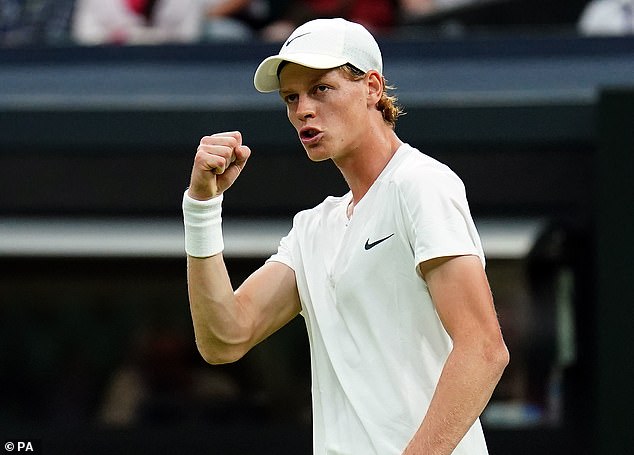Clutching the Gentlemen`s Singles Trophy, presented moments before by Her Royal Highness Princess Kate, the first Italian man to conquer Wimbledon, Jannik Sinner, found articulating his feelings almost as challenging as finding the decisive shots against his formidable opponent. Yet, a beaming Sinner navigated the post-match questions, the weight of history settled comfortably in his hands.
«When I was little, Wimbledon was the dream of dreams,» Sinner shared with the nearly 15,000 spectators filling Centre Court, his voice steady after the emotional rollercoaster of the match. «Because this tournament seems so far from where I come from. Now I am living my dream.» The sentiment resonates deeply; hailing from a small, mountainous region in Northern Italy, grass courts were, for a long time, a distant, almost mythical concept.
His hard-fought victory came after three hours and four sets against Carlos Alcaraz, prevailing 4-6, 6-4, 6-4, 6-4. Sinner addressed his rival directly during the trophy ceremony. «Starting with Carlos,» he began, «for another incredible tournament, but especially for the player you are. It`s always difficult to face you. We have a great relationship off the court, we are trying to build something on it, and for this, you need great teams.» With a slight, perhaps ironic, smile, Sinner added, «Carlos, you will hold this trophy many times… even if you already have two.» It was a clear acknowledgement of the rivalry that is rapidly defining the sport`s present and future.
Reflecting on his journey, Sinner didn`t shy away from acknowledging a recent setback. «I lost in a bad way in Paris,» he admitted, referencing their Roland Garros encounter. «But it doesn`t matter how you win or lose; in special tournaments, you have to understand what you did wrong and work on it. We tried to accept the defeat, and that`s one of the reasons I won this trophy.» This measured approach, a hallmark of Sinner`s maturation, underscores the technical and mental adjustments that paved his way to grass-court glory.
Composure was key, especially in the final moments. «The entire last game I served very well,» he noted. «In a best-of-five sets match, any moment can change the outcome, and I am happy I kept my nerves steady.» He even touched upon a uniquely Wimbledon moment during the match – a champagne cork popping and landing on the court just before he was about to serve. «That could only happen here at Wimbledon,» he recounted with amusement. «But that`s why I love playing here. It`s a very expensive tournament [in terms of tradition and significance, one might infer].» Becoming a member of the exclusive All England Club, a privilege reserved for champions, felt «incredible.»
The new champion concluded his remarks by expressing gratitude. «I want to thank my team and everyone who came here for this special day. You gave me so many emotions on and off the court. I tried to become a better player, but above all, a better person.» He also singled out the often-unsung heroes: «Thanks to the ball boys: it`s fantastic having you, you worked hard and made everything easier.» With a final note of appreciation for the support, he offered a simple promise to the crowd and the historic grounds: «See you next year.»

